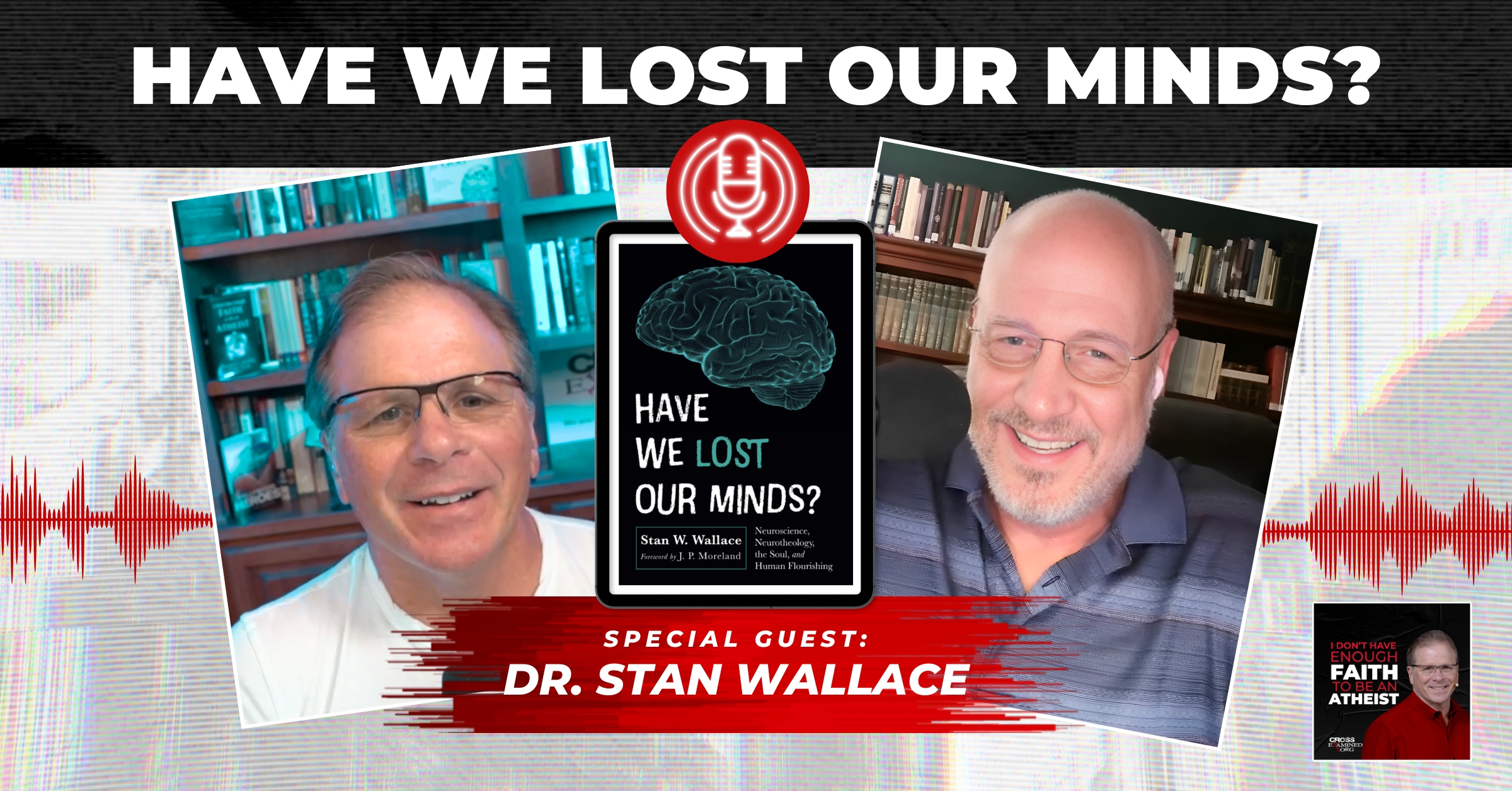From Laws of Physics to Reasonable Faith
Many may be surprised to find that knowledge is actually the foundation for faith in God.
A Blind Faith And God’s Hiddenness
Two common challenges to the truth of the Christian worldview are the seeming hiddenness of God and the accusation that Christianity requires a blind faith. Many people see the great amount of suffering in the world and in their own lives and wonder where God is and why He doesn’t seem to care to alleviate the suffering. Many skeptics also see Christians making claims about reality that are demonstrably false, and those people conclude that Christians’ faith is a belief despite evidence to the contrary- a blind faith.
The skeptic knows that there must be continuity between the present and the past (and the future) for us to reasonably believe that what happens in the present can be used to infer what has happened in the past (or make predictions about what will happen in the future). Armed with knowledge of the past, there is a solid, logical foundation to conclude something about the future. This also means that without knowledge of the past, there is no solid foundation to trust something with the present or the future.
This is how the skeptic believes they are being logical as they conclude that the Christian God is hidden (if not non-existent) and unfaithful, and how they also conclude that Christians’ faith is blind. Today, I want to take some time to show an understanding of the physical world will demonstrate that the skeptic has made a mistake in their reasoning to both conclusions about God’s supposed hiddenness and the supposed blind faith of Christianity.
Is Faith In God Really Blind?
Let us start with the very book that claims to accurately describe the Christian God: the Bible, and with the actions of this God: creation. If the Bible accurately describes the Christian God, then we have this series of arguments regarding faith in God for present and future experiences:
- If the laws of physics are constant, then God’s character is constant (Jeremiah 33:25-26).
- The laws of physics are constant.
- If God’s character is constant, then His character can be trusted to be the same across all time.
- God’s character is constant.
- If God’s character has been faithful in the past, then His character will be faithful in the present and the future
- God’s character has been faithful in the past.
- Therefore, God’s character will be faithful in the present and the future.
This faith is a reasonable faith that is grounded in what we already know and have experienced. For the skeptic who wishes to claim that Christianity is an illogical and unreasonable faith, they must face in inconvenient reality: If they believe that Bible describes the Christian God, then it necessarily follows from Jeremiah 33:25-26 that the Christian God is faithful to His promises, and our trust in Him (faith) for present and future difficulties and sufferings is logically grounded in God’s past faithfulness through difficulties and sufferings. This means that our faith in God is a most logical faith.
What If The Laws of Physics Are Not Constant?
However, the soundness of the argument and our trust in the constancy of God’s character is dependent upon the reality of the constancy of the laws that govern the heavens and the earth (this universe). If these laws are not constant and have changed and if God is just as constant (the first premise in the argument), then God’s character can change. This means that if the laws of physics change, then God’s character changes, which necessarily implies that God’s promises can be rescinded, His faithfulness is laughable, and He is certainly not to be trusted.
If the skeptic were to deny constant laws of physics to avoid the conclusion that the Christian faith is a reasonable and logical faith, then they would suffer the logical consequence of the collapse of the entire scientific enterprise. While some (non-scientific) skeptics may be willing to live with this logical implication, many would be unwilling to do so. But they would be unwilling to do so at the cost of logical consistency. Because consistency is a necessary feature of logic and because reality is consistent, both logic and reality are abandoned with such a philosophical move.
When logic and reality are abandoned, though, all we have is a delusion guided by blind faith. Ironically, it is the skeptic who would refuse to surrender knowledge of the natural world (the goal of the scientific enterprise), in order to avoid the logical conclusion of God’s faithfulness (or even His existence), who is the one committed to a delusion and blind faith. (See the post “6 Ways Atheism Is A Science-Stopper” for more details on this line of reasoning.)
Now, if the Christians were to deny constant laws of physics for whatever reason (see “Is Genesis History” for an example), they then would suffer the logical consequence of the collapse of God’s faithful character. For a Christian who denies the constancy of the laws of physics, yet affirms God’s faithfulness, they, like the skeptic, do so at the cost of logical consistency- an abandonment of reason. Again, when logic and reason are abandoned, all that is left is a blind faith. And in a second move of irony, the skeptic who complains about a Christian’s blind faith does so only while affirming their own blind faith. (See the post “How Naturalism Defeats Science As A Knowledge Discipline“).
Interestingly, when the skeptic looks at the beliefs of Christians who deny the constancy of the laws of physics, they have an excuse for believing that the Christian faith is a blind faith; however, if the skeptic examines nature, they have no such excuse (Romans 1). So, if we bring together the idea that the Bible accurately describes the Christian God and the idea that the laws of physics are constant, then we have the conclusion that trust in the Christian God is necessarily a reasonable faith.
God’s Hiddenness
But how does this address the idea of God’s apparent hiddenness? If God has been faithful in the past, then it necessarily follows that He will be faithful in the future. As we read through the Bible, we see time after time that God has been faithful despite the sufferings. As Christians get older they often look through their lives and see how God has carried them through their sufferings and has remained faithful to them through the process. We have testimonies of God’s past faithfulness despite suffering from people of the ancient past (the Bible), the recent past (writings of past Christians in history), the present (friends, family, and the rest of the current Church), and even in our own personal lives. It is through his knowledge—this strong body of evidence of God’s past faithfulness and the constancy of God’s character evidenced by the scientific study of the natural realm—that we know that God is being faithful now and will be faithful in the future. Even if we cannot “see” how God is working right now, we can be assured that He is at work and our trust in Him is properly and reasonably placed.
Recommended resources related to the topic:
Why Science Needs God by Dr. Frank Turek (DVD and Mp4)
Science Doesn’t Say Anything, Scientists Do by Dr. Frank Turek (DVD, Mp3, and Mp4)
Oh, Why Didn’t I Say That? Does Science Disprove God? by Dr. Frank Turek (DVD and Mp4)
Stealing From God by Dr. Frank Turek (Book)
God’s Crime Scene: Cold-Case…Evidence for a Divinely Created Universe (Paperback), (Mp4 Download), and (DVD Set) by J. Warner Wallace
God’s Crime Scene: The Case for God’s Existence from the Appearance of Design (mp4 Download Set) by J. Warner Wallace
God’s Crime Scene: The Case for God’s Existence from the Appearance of Design in Biology DVD Set by J. Warner Wallace
_____________________________________________________________________________________________________________________________________________
Luke Nix holds a bachelor’s degree in Computer Science and works as a Desktop Support Manager for a local precious metal exchange company in Oklahoma.
Original Blog Source: https://cutt.ly/dzzXsRX











